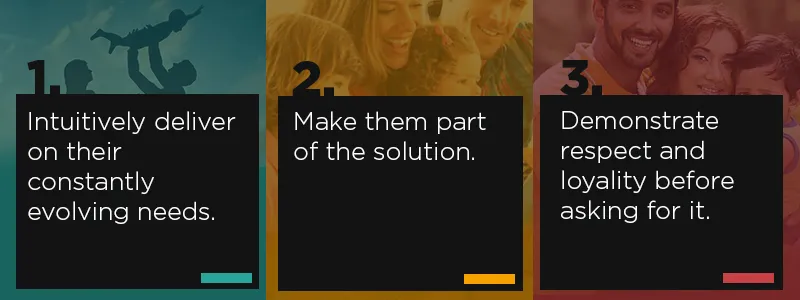How Kickstart Cabs is looking to make commuting hassle-free for the disabled in Bangalore
You may not think twice before boarding a train, a bus, or climbing a step – these mundane actions are made almost subconsciously by us each day. But for the 70 million disabled people in India, getting hassle-free access to public transport is a challenge.
Only about 15 percent of the locomotor-disabled in India are able to use public transport, as compared to over 65 percent of disabled populations in developed countries. The rest struggle to commute daily, or are immobile.
India’s social support network of family and friends may be much stronger than in developed nations, but our barrier-free access to public facilities is a rising cause for concern.
Having worked extensively in the disability sector, Vidhya Ramasubban, 48, had a great understanding of the everyday problems the community was facing. While she wanted to continue working in the same sector, the urge to break away from the shackles of routine life and do something exciting took over her. She was aware of the huge gaps in this sector and decided to startup Kickstart Cabs in early 2016 to make commuting easy for the disabled. Her Co-founder Srikrish Siva, 46, an alumnus of BITS Pilani, was a management consultant working with an MNC, who wanted to dedicate his life to something more meaningful.

The journey to become a full fledged venture
The founders started by floating the idea to NSRCEL and got some very valuable inputs from Prashant Sankaran, who was one of the mentors there. Although Kickstart Cabs was not incubated by NSRCEL, the inputs helped the founders gain confidence that the service they were going to provide was viable.
The team subsequently approached Mphasis Foundation, who were more than willing to take them on board. Kickstart Cabs began its services based on a hybrid model with the help of Wheels of Change, Wheels of Change, a non-governmental organization (NGO), which promotes the development of an inclusive society and Mphasis. Vidhya and Srikrish ran a pilot with three cars after launching the idea in early 2013, and only began operations in early 2016, after being fully assured of the viability of the business.
From then to now, the venture has grown at an encouraging rate and has served over 450 unique customers with its fleet of eight vehicles.
“Over 90 percent of our trips are from repeat customers” the founders add ecstatically.
Kickstart Cabs currently charges Rs 800 for a single two-hour trip or a distance of 20 km for the Wheel Chair Ramp Model. A similar trip on the turn-out wheelchair model costs Rs 700. The customers can also opt for a more reasonable and convenient package option depending on their travel. The services can be availed by making a booking through Kickstart’s website or over the telephone. The founders are also in talks with various call centres to make services more accessible. An app to make the booking process easy is also in the pipeline. The founders have also hired two persons to take charge of administration and operations.
While Kickstart Cabs is operating in the urban commuting space, it remains unaffected by the problems affecting the taxi aggregator space. The service is designed specifically to help the elderly, and people with disabilities. With the obvious desire to do well as a business, the company’s goal is to provide a safe, comfortable, and dignified means for their customers to commute.
The revenue has been increasing at a steady rate and the founders are now focusing on customer acquisition, and looking to double the customer base annually.
Vidhya and Srikrish have formally signed an MOU with Manipal, and are also in discussions with hospitals including Sakra, Vikram, and Apollo.
Kickstart Cabs currently operates only in Bangalore, and the founders plan to expand services to Chennai within the next year. While Kickstart continues to serve more and more people, it is also looking to increase the fleet size and raise funding for the same.

The learning that came with growth
Vidhya and Srikrish waited for three long years before they could finally start operations this year. Why inspired them to do so?
“The idea was there and the best way to test it out was by starting. Of course, we were lucky to find support from Mphasis. Fortunately, we had the experience of being an ‘insider’ in the disability sector, but we’re yet to gauge how big of a gap this was,” say Vidhya and Srikrish.
The phase led the founders to quite a few revelations, which would have been difficult to tackle had they occurred after starting operations. The first lesson they learnt was to spend frugally, as a result of which they haven’t spent a penny on marketing as yet. Instead, they rely on their repeat customer base to spread the word, a move that has worked quite well for Kickstart so far.
Another very important tactic they deployed during the initial phase was employee management. As a majority of Kickstart’s staff comes from the lower end of the income spectrum, there was always a need for financial assistance, but it was incredibly difficult for the founders to loan offer a loan, despite wanting to help. However, as the fleet of cars and number of employees has increased, they are able to manage and train their staff better.
Apart from the medical sector, the founders also discovered newer areas they could expand to. Kickstart now aims to assist the disabled in their daily commute and offers corporate and personal services in addition to partnering with several leading hospitals.
As the initial fleet of three cars was not enough to meet demand, it led to a lot of trip rejection. The issue was not just with scaling up but also the economics of running the business. The founders realised the need to increase the fleet size and were fortunate to have Mphasis invest in the business during the growth phase.
While Kickstart does have the potential to create impact in terms of serving the disabled population, and also making a huge difference to their quality of life, the founders realise that theirs is a low-margin business and will take some time for the results to show. However, they are trying to find creative alternatives to the issue of vehicle modification as well as scaling up without owning more and becoming asset light.
Balancing social responsibility and business
But starting up in the disability sector has its unique challenges. It requires more than just business prowess and the founders have had their fair share of troubles. The basic challenge they faced was to hire the right pool of drivers, as they were to become the core resources of the business. Hiring got even more difficult because apart from the regular legal and safety checks, the founders also had to look for people who were inclined towards serving the elderly and disabled.
“It is not just about taking a person from point A to point B. It is also about understanding the need to help our customers get in and out of the cars,” explain Vidhya and Srikrish.
And as the quest to get the right kind of drivers on board became more difficult, the founders managed to devise a solution. They now hire drivers based on two qualities – empathy and willingness to help. These drivers are then given further training, which helps them understand the impact that they are creating.
However, the founders hope that as the service takes off, and awareness around the issue increases, drivers will voluntarily come forward to work for them. Kickstart Cabs is also looking to create a pool of woman and transgender drivers and are looking to get them on board.
Long way to go
The commuting challenges faced by the disabled community are immense. They are extremely dependent on relatives and friends to help them get in and out of the cars. India’s public transportation is not disabled-friendly and neither is most of our infrastructure. Buildings don’t have ramps; public spaces are not wheelchair-accessible; public toilets and even many modern buildings have utter disregard for wheelchair users.
“Most people choose to stay home even though they would like to go out and lead a life like others do. Our drivers are empathetic and willing to go that extra step to help our customers get in and out of the cars and be comfortable.” explain Vidhya and Srikrish
We have a long way to go as a country and society in being inclusive, and initiatives like Kickstart Cabs are certainly leading by example







